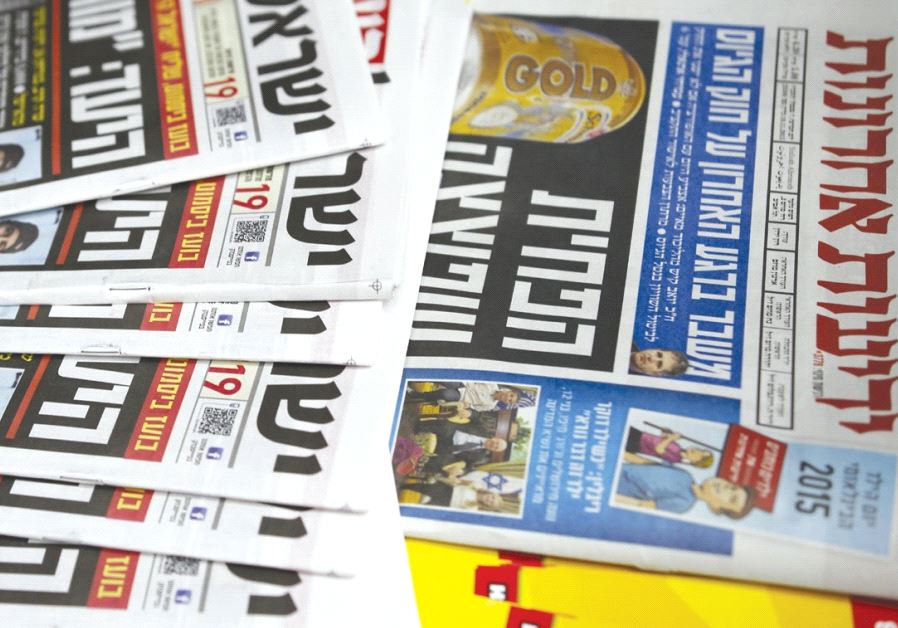Think About It: Netanyahu’s media obsession and elections
Netanyahu has always been something of a control freak. However, his problem is simply that he apparently lacks the skill of inspiring loyalty.
 COPIES OF ‘Israel Hayom’ and ‘Yediot Aharonot’ are displayed in Ashkelon l
COPIES OF ‘Israel Hayom’ and ‘Yediot Aharonot’ are displayed in Ashkelon l